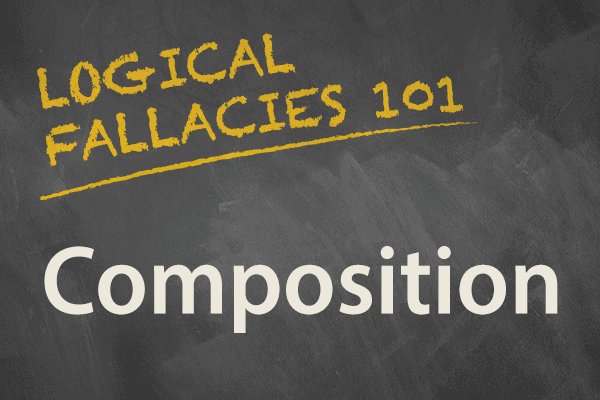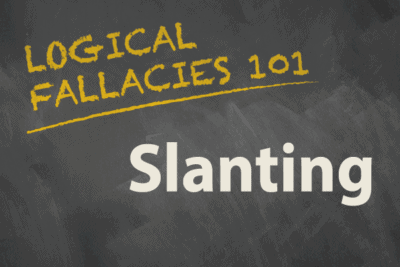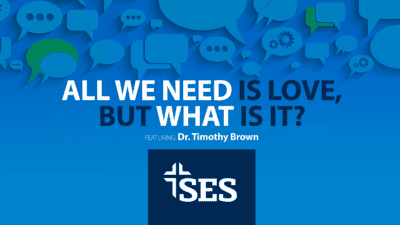By Dr. Doug Potter,
I have been a football fan since I was five years old. Way before fantasy football, I can remember thinking that if I had my own football team, I would just pick the best players in the league in each position to have on my team. “How could my team ever lose,” I thought. There was even a real life experiment that seemed to back up my thinking. Most probably have not heard of the College All-Star Game. This was an annual charity game played between the pro champion team and the best senior college football players from across the nation. Although not played anymore, it lasted from 1934-1976. If you think the pros always won, you are wrong. If the best college football players could sometime beat the best pro team, would it not follow that the best pro players, selected from the league, would not always beat any other team?
So goes the informal fallacy of composition, which is part of the family of material fallacies known as Oversimplification. The fallacy of composition occurs when someone assumes or argues, “From the part to the whole, ignoring the fact that what is true of the part is not necessarily true of the whole.”[1] Consider a few key observations about this fallacy. First, it does not say that what is true of the parts can never also be true of the whole. Note it says “. . . is not necessarily true . . .” as it may indeed be true of the whole. Second, the fallacy may be committed with just one part or with all the parts of the whole. Third, the fallacy can manifest itself in instances when we expect more from the whole than the parts can deliver and sometimes we expect less from whole than the parts can deliver. Perhaps some examples will help.
Interested in pursuing a deeper knowledge of the faith?
Examples of the Fallacy of Composition
Example 1: “If we have all the best players on our team, we will always win.”
Notice it is saying “always” win, and that it is expecting more from the parts (players) than the whole team can deliver. Winning involves much more than having good players. Indeed, a team with poor players can sometimes beat a team with better players. Having the best players does not equal having the best team or even the team that always wins.
Example 2: “Paul is the smartest student in our school. Since he is in my class, I must be in the smartest class.”
Notice here that only one part (Paul) is used to assume that the whole (class) is what the single part is (smart).
Example 3: “Disneyworld is nothing more than seeing people in costumes resembling movie characters.”
Notice here that the whole (park) turns out to be much more than its parts. Disneyworld, or most other parks for that matter, is probably about much more than people in costumes.
Learn more about the Christian Faith at SES!
Do Theists Commit the Fallacy of Composition?
So, what are some instances when what is true of the parts is also true of the whole? This is where it gets interesting. Theists often make the following argument for the existence of a Cause (=God) for the universe:
“If every part of the universe is dependent (or caused) to exist, then the entire universe is dependent or needs a cause to exist.”
Atheists are quick to accuse the theist of committing the fallacy of composition. Just because each part is caused or dependent does not mean the whole (universe) is dependent or caused. Indeed, I can see my professor drawing the following diagram on the board in front of our class:

You see, the atheist will point out, just because each part is a triangle does not mean the whole is a triangle when combined together. Likewise, just because the universe contains dependent things does not mean that the whole universe is dependent or caused.
However, as we have stated, sometimes what is true for the parts does constitute what is true of the whole. If your yard only has green grass in it, then is not the whole yard green grass? If each tile on my floor is white, is not the whole floor white tile? It would seem to follow, thinks the theists, if all the parts are dependent or caused, is not the whole dependent or caused? So how do we know who is right about the universe or whether the theist has committed the fallacy of composition?
How to Avoid the Fallacy of Composition
For this, we will have to dig out our dictionary of philosophy. There are two important terms or concepts to get down that help us see if the fallacy of composition is involved or not. The two terms are accidental and essential. Accidental are the “attributes belonging to some nature but not constituting its essence or a part of its essence”[2] In other words, “accident” entails that it is attributed to something but is not necessary to that thing’s nature. A human for example, may have brown hair, green eyes, be a certain height and weight, but these are all accidental to a particular human. Change them and you do not change the nature; hence they are only accidental. On the other hand, Essential is “belonging or concerning the essence or nature”[3] of something. In other words, its essence makes it what it is as opposed to something else. It is essential to humans, for example, that they are rational creatures. So how does this help with the fallacy of composition?
It is accidental to triangles that when they are combined together they make squares. But it is essential to triangles that they are geometric figures, and when they are combined together, the whole can only be a larger geometric figure; it cannot be a non-geometric figure. Likewise, what the theist is saying in response to the atheist’s charge of committing the fallacy of composition is that it is essential to dependent (or caused) things that when they are combined together, they are still dependent (or caused); see the following formula:
Dp + Dp + Dp + Dp + Dp = Dw
Dp= Dependent part
Dw = Dependent whole
You cannot get an independent whole out of all dependent parts. This is because dependence is essential to the nature of things in the world, not accidental. Natures like rocks (asteroids), vegetation (trees), animals (cats), humans (you and me), and even things made out of some of these like houses, cars, and spaceships can cease to exist or be destroyed. Hence, they must be dependent or caused as opposed to independent and necessary. If so, then the whole must be dependent upon something that is ultimately independent, or there is no explanation as to why something exists rather than nothing.
No doubt this is not the last word on clarifying the fallacy of composition, its application to theistic arguments, and the reason your fantasy football team did not do well this year, but hopefully you found this helpful.
Dr. Potter is the author of Developing a Christian Apologetics Educational Program (Wipf & Stock, 2010) and co-author (with Dr. Norman Geisler) the Teacher’s Guide for Twelve points that Show Christianity is True (Bastion Books, 2015). He has written and published articles in the Christian Apologetics Journal, The Homeschool Digest, as well as the Christian Research Journal. Dr. Potter also serves as the Registrar and Director of the Doctor of Ministry Program.
Bibliography
[1] Peter Kreeft, Socratic Logic: A Logic Text Using Socratic Method, Platonic Questions, and Aristotelian Principles, 3.1 ed., ed. Trent Dougherty (South Bend, IN: St. Augustine’s Press, 2010), 87.
[2] Bernard Wuellner, Dictionary of Scholastic Philosophy (1956, rep., Fitzwilliam, NH: Loreto Publications, 2012), 2.
[3] Ibid., 42.



 Dr. Potter is the author of Developing a Christian Apologetics Educational Program (Wipf & Stock, 2010) and co-author (with Dr. Norman Geisler) the
Dr. Potter is the author of Developing a Christian Apologetics Educational Program (Wipf & Stock, 2010) and co-author (with Dr. Norman Geisler) the 






